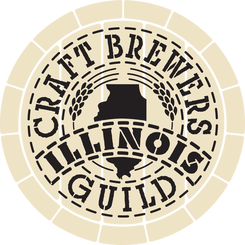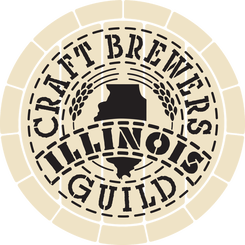Our Legislative Priorities
We advocate on behalf of Illinois craft breweries.

Industry Modernization
Illinois liquor laws were penned in the 1930s, long before the advent of the craft breweries they now govern. Today, craft breweries are cornerstones of the state's economy, spurring investment, creating jobs, and anchoring communities. But they are struggling under the weight of outdated policy and pandemic recovery. That's why we're working to modernize Illinois liquor laws to help our craft breweries survive in a changing economy, employ more people, and deepen their community impact.
Legalizing Mug Clubs and Reward Programs
Reward and loyalty programs have long operated in Illinois breweries and retailers without definitive guidance within the state's liquor laws. We want to formalize standards for these programs, which drive customer loyalty and sales in our breweries.
Legalizing Craft Beer Donations to Nonprofit Organizations
Illinois law is unclear when it comes to how nonprofits can utilize craft beer donations, with current interpretations permitting donations for on-site event consumption, but not for raffles or auctions, which can help nonprofits create revenue.
Eliminating Burdensome Reporting Requirements
Newly enacted water reporting requirements fulfill no measurable policy goal, instead imposing additional burden and administrative costs on small businesses. Plus, they have proven ineffective as a metric for measuring production, so we're asking for their removal.
Expanding the Beer Showcase Permit
Introduced in 2021, the Beer Showcase Permit allows Class 3 breweries to transfer and sell their product at off-site community events such as farmers markets and community festivals. We think all breweries should have the right to participate in community-building events, so we're advocating for Beer Showcase Permits to be available to breweries under all Illinois classifications.
Increasing Self-Distribution for Class 3 Breweries
The Class 3 License allows craft beer producers to operate as brewpubs with limited self-distribution privileges (up to 200 barrels annually) within a defined geography. In order to effectively grow in new markets, we're working to help Class 3 breweries secure the right to self-distribute up to 2,500 barrels annually.
Increasing the Transfer Cap for Class 2 Breweries
Existing regulations limit the amount of product a large, Class 2 brewery can legally transfer product between their own locations (i.e., from production facility to taproom) to 1,000 barrels per year. If they need to transfer more, they must hire a distributor, giving up a significant percentage of their revenue. We believe that a transfer cap of 4,500 barrels will promote growth while helping breweries keep more of their revenue and invest it back into their businesses.
Illinois liquor laws were penned in the 1930s, long before the advent of the craft breweries they now govern. Today, craft breweries are cornerstones of the state's economy, spurring investment, creating jobs, and anchoring communities. But they are struggling under the weight of outdated policy and pandemic recovery. That's why we're working to modernize Illinois liquor laws to help our craft breweries survive in a changing economy, employ more people, and deepen their community impact.
Legalizing Mug Clubs and Reward Programs
Reward and loyalty programs have long operated in Illinois breweries and retailers without definitive guidance within the state's liquor laws. We want to formalize standards for these programs, which drive customer loyalty and sales in our breweries.
Legalizing Craft Beer Donations to Nonprofit Organizations
Illinois law is unclear when it comes to how nonprofits can utilize craft beer donations, with current interpretations permitting donations for on-site event consumption, but not for raffles or auctions, which can help nonprofits create revenue.
Eliminating Burdensome Reporting Requirements
Newly enacted water reporting requirements fulfill no measurable policy goal, instead imposing additional burden and administrative costs on small businesses. Plus, they have proven ineffective as a metric for measuring production, so we're asking for their removal.
Expanding the Beer Showcase Permit
Introduced in 2021, the Beer Showcase Permit allows Class 3 breweries to transfer and sell their product at off-site community events such as farmers markets and community festivals. We think all breweries should have the right to participate in community-building events, so we're advocating for Beer Showcase Permits to be available to breweries under all Illinois classifications.
Increasing Self-Distribution for Class 3 Breweries
The Class 3 License allows craft beer producers to operate as brewpubs with limited self-distribution privileges (up to 200 barrels annually) within a defined geography. In order to effectively grow in new markets, we're working to help Class 3 breweries secure the right to self-distribute up to 2,500 barrels annually.
Increasing the Transfer Cap for Class 2 Breweries
Existing regulations limit the amount of product a large, Class 2 brewery can legally transfer product between their own locations (i.e., from production facility to taproom) to 1,000 barrels per year. If they need to transfer more, they must hire a distributor, giving up a significant percentage of their revenue. We believe that a transfer cap of 4,500 barrels will promote growth while helping breweries keep more of their revenue and invest it back into their businesses.
